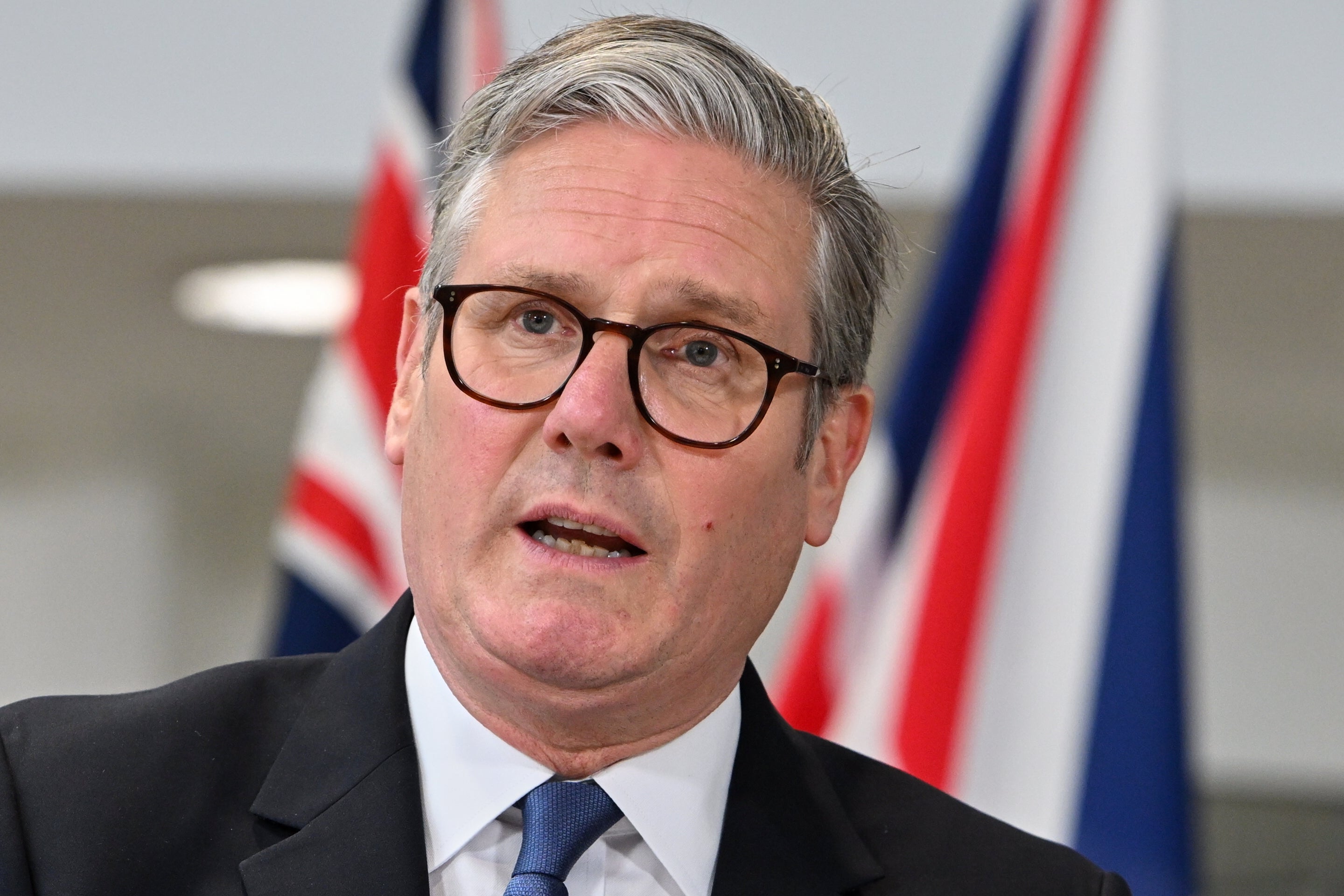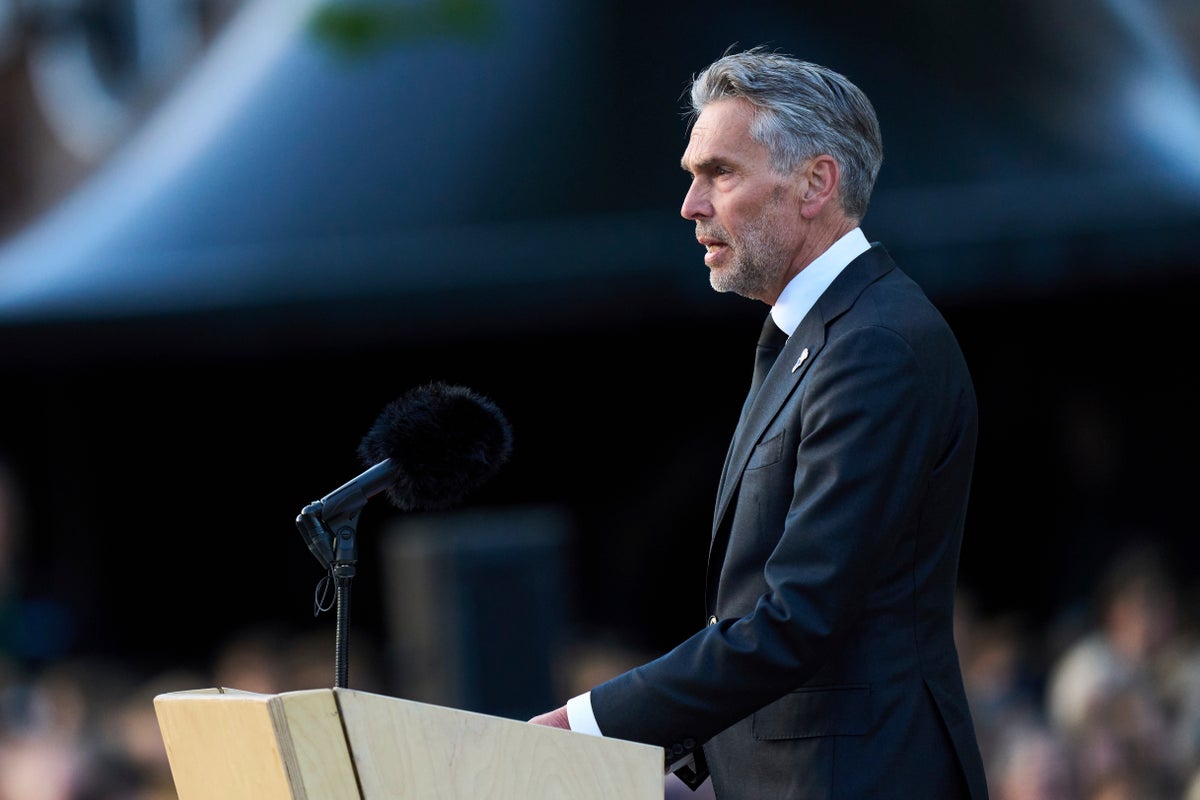Britain is set to build up to 12 new nuclear-powered attack submarines in response to rapidly increasing global threats, Sir Keir Starmer will announce as he unveils his long-awaited defence review.
The Ministry of Defence (MoD) will also spend £15bn on new warheads for the UK’s nuclear deterrent, the prime minister will reveal for the first time, as part of plans to make the country ready for war.
Ministers must act “decisively to face down Russian aggression” and ensure Britain is “secure at home and strong abroad”, the defence secretary John Healey warned.
Sir Keir has called the 130-page review, which is set to be published on Monday, a “radical blueprint”, and pledged it will lead to a “wave of investments” in shipbuilding, drone technology and cyber defence.
Announcing the plans – which he will claim will create a “defence dividend” that supports tens of thousands of highly skilled jobs – Sir Keir is expected to say they will “ensure the UK rises to the challenge and our armed forces have the equipment they need that keeps us safe … while driving greater opportunity”.
Among the report’s 62 recommendations, which are all expected to be accepted by the government, are:
- A “landmark” shift to war readiness to deter growing threats
- Up to six new munitions factories that can be scaled up in response to a crisis
- A new stockpile of 7,000 UK-built long-range weapons
- A new cyber command to counter a “continual and intensifying” level of cyber warfare
- £1.5bn for military housing amid claims that years of neglect have led to troops quitting
The nuclear investments announcement comes just weeks after the Labour leader pledged to destroy Vladimir Putin’s “shadow fleet” of ships, which evade international sanctions. The Royal Navy is also increasingly concerned about hostile state activity by Russia in the Arctic, a key flank of Europe and Britain’s security, amid fears about the threat to critical infrastructure such as undersea cables that provide power to the UK.

The plans will significantly increase the UK’s conventionally armed, nuclear-powered submarine fleet, with the new vessels built under a joint deal with the US and Australia, known as the Aukus partnership.
At the moment, the MoD has five Astute-class attack submarines, a figure that is due to rise to seven by the end of next year. A separate fleet of nuclear-armed submarines will also receive a boost from a previously announced warhead programme, which ministers have put a £15bn price tag on for the first time.
The MoD predicts that the nuclear investments will support 30,000 highly skilled jobs across the UK, while the plans will require significant modernisation of infrastructure at the Atomic Weapons Establishment in Aldermaston.
Mr Healey said: “Our outstanding submariners patrol 24/7 to keep us and our allies safe, but we know that threats are increasing and we must act decisively to face down Russian aggression.
“With new state-of-the-art submarines patrolling international waters and our own nuclear warhead programme on British shores, we are making Britain secure at home and strong abroad.”
On Sunday, Mr Healey described the review as a “message to Moscow” and said Britain was facing “daily” cyber attacks from Russia, as part of 90,000 assaults on Britain’s defence systems linked to different states.
Asked if he expected a real-world attack from Russia in the coming years, he said: “We have to be prepared. Nato has to be prepared. We see Putin in Ukraine trying to redraw international boundaries by force… It’s part of the growing Russian aggression.”
This is why the UK and Nato are “stepping up our ability to deter as well as to defend in the future”, he added. “We prepare for war in order to secure the peace.”
But plans to increase the size of the army will not come into effect until after 2029 at the earliest, he conceded.

Shadow defence secretary James Cartlidge said: “All of Labour’s Strategic Defence Review promises will be taken with a pinch of salt unless they can show there will actually be enough money to pay for them. Whereas, far from guaranteeing the funding, John Healey has been hung out to dry by Rachel Reeves.
“As recently as Thursday, Healey promised that defence spending would definitely hit 3 per cent, but today he’s completely backtracked. These submarines are not due to enter service till the late 2030s, so how can we have any confidence Labour will actually deliver them when they can’t even sustain a policy on defence spending for more than 48 hours?”
Liberal Democrat defence spokesperson Helen Maguire said: “This signals absolutely the right intent about the need to bolster the UK’s defences in the face of Putin’s imperialism and Trump’s unreliability. But this must come with a concrete commitment and detail on full funding. Labour’s mere ‘ambition’ rather than commitment to reach 3 per cent of GDP on defence leaves serious questions about whether the money for these projects will actually be forthcoming.
“The 2034 timeline suggests a worrying lack of urgency from the government. Unless Labour commits to holding cross-party talks on how to reach 3 per cent much more rapidly than the mid-2030s, this announcement risks becoming a damp squib.”
Shadow justice secretary Robert Jenrick welcomed Mr Healey’s comment that he had “no doubt” that defence spending would rise to 3 per cent of GDP by 2034, but said he was “sceptical” it would happen.
“We think that 2034 is a long time to wait given the gravity of the situation,” he told the Sunday Morning with Trevor Phillips programme on Sky News.


